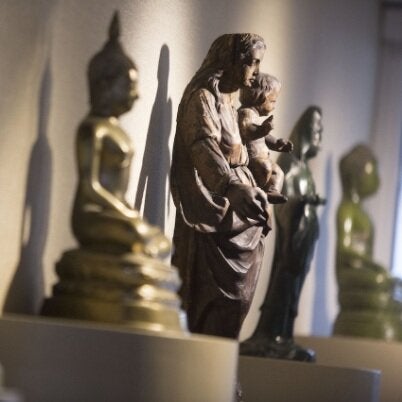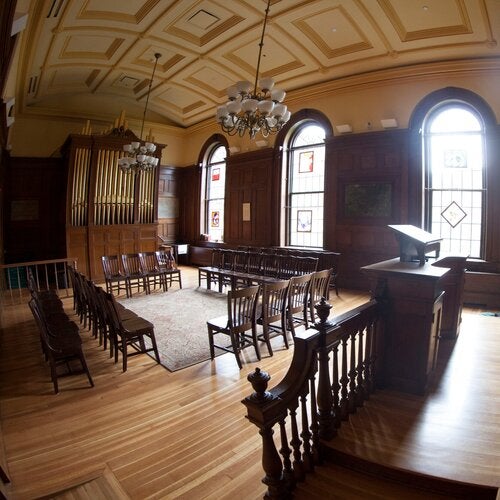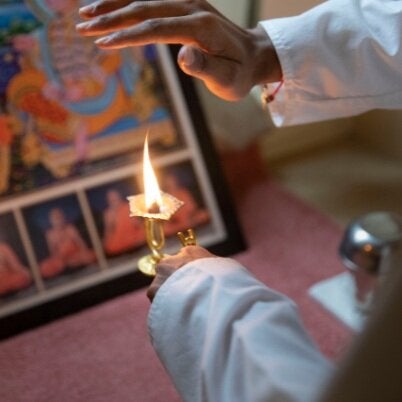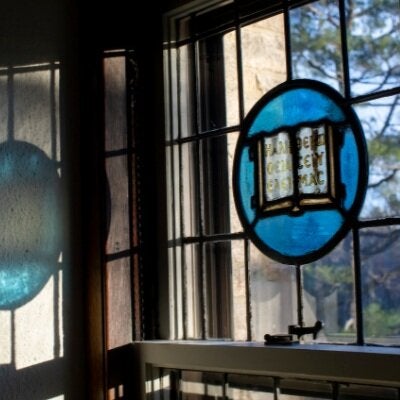As U.S. deputy secretary of state from 1985 to 1989, John C. Whitehead MBA ’47, LLD ’95 found that religion was often at the heart of seemingly intractable issues. And as a longstanding supporter of Harvard Divinity School (HDS)—including serving on the HDS Dean’s Council and as honorary chair of its most recent capital campaign—he felt strongly tied to its mission of fostering religious literacy, compassion, and empathy. Whitehead, who passed away in 2015, detested violence and the rise of fanaticism across the world, hoping that future leaders trained in compassion and mercy would not repeat the atrocities of the past.
To honor his father’s memory and the values he lived by, philanthropist Gregory Whitehead made a generous commitment through the Whitehead Foundation to help launch Religion and Public Life at HDS. The new program aims to contribute to social justice and sustainable peace by providing knowledge that can bridge religious, political, and cultural divides; incorporate fresh insights about religion and ethics into fields such as education, journalism, humanitarian work, business, and government; and help create positive social change.
In addition to classes and events, a new master’s degree has also been created under this programmatic canopy, which will welcome its first cohort of students in the fall of 2021 from the fields of business, law, the arts, nonprofit work, and more to gain detailed knowledge about the power of religion in human experience relevant to their fields. Degree candidates will learn from one another in shared seminars while creating a course of study that is geared toward their own professions. After graduation from the one-year program, practitioners will have the tools they need to serve as leaders in their fields who advance public understanding of religion.
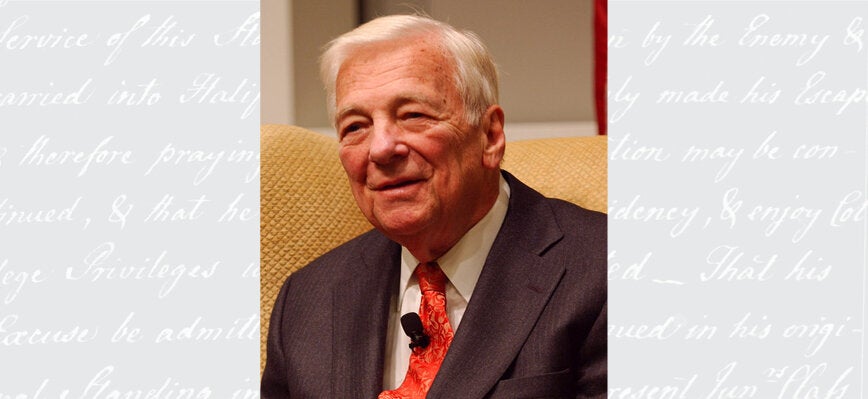
An Enduring Legacy
Like his father, Gregory hopes that peaceful solutions to conflict are possible with ethical leaders grounded in deep interfaith understanding. “My father, like his father, Eugene, before him, always came to the table in the spirit of fairness, consensus, and service to others,” says Gregory. “He was also particularly concerned about the collapse of ethical standards within the financial world, to which he had devoted much of his career.”
Gregory was inspired to provide funding to launch the new program at HDS in his role as head of the Whitehead Foundation, which builds on his father’s legacy of support for mission-based organizations, including those that work toward human rights, racial justice, and creative engagement.
“The path of compassion requires walking in the shoes of others—a path that compels us to recall and honor the sanctity of all life forms in a spirit of restorative justice, equity, and humble reckoning with uncomfortable truths,” Gregory says.
The gift also honors the friendship between John Whitehead and HDS Dean David N. Hempton. According to his son, John was encouraged by the spirit of interfaith community across the School and inspired by Hempton’s work in pursuit of peace in Northern Ireland.
One of the School’s most trusted advisors and most loyal donors, John provided longstanding support for financial aid.
“With the Whitehead Foundation’s pivotal gift to help launch Religion and Public Life, Gregory Whitehead carries forth his father’s enduring legacy and enables the School to foster a deeper understanding of religion and ethics across the University—and within a wide range of endeavors and professions—all in service of a better world.”
“John Whitehead was a deeply committed advisor and friend to the Divinity School, while expanding the moral imaginations of leaders in the public sphere,” says Hempton, Alonzo L. McDonald Family Professor of Evangelical Theological Studies and John Lord O’Brian Professor of Divinity. “With the Whitehead Foundation’s pivotal gift to help launch Religion and Public Life, Gregory Whitehead carries forth his father’s enduring legacy and enables the School to foster a deeper understanding of religion and ethics across the University—and within a wide range of endeavors and professions—all in service of a better world.”
A proud graduate and generous benefactor of Harvard Business School (HBS) with an abiding interest in ethics and corporate responsibility, John provided funding to launch HBS’s Social Enterprise Initiative with the goal of encouraging more students to embark on careers in the not-for-profit sector and in ventures focused on social impact.
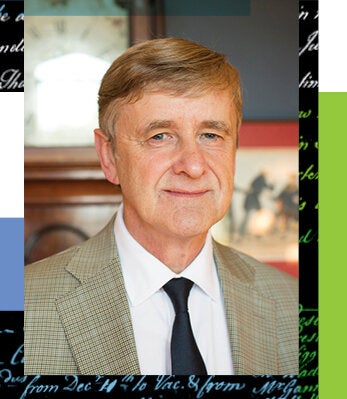
A Vision of Compassionate Leadership
Led by HDS lecturer Diane L. Moore MDiv ’84, Religion and Public Life aims to give people better tools to understand the complexity of religion as well as the language to share that understanding with others. Ultimately, this knowledge will help those working towards conflict resolution and restorative justice in their careers—providing the framework to ask questions about how religions function, which voices are ascendant in a given moment, and which are marginalized.
“Religion is a powerful force in human experience,” says Moore, senior fellow at the Center for the Study of World Religions and founding director of the Religious Literacy Project at HDS. “From the beginnings of human history into our contemporary moment, religious convictions continue to inspire the full range of human agency—from heinous acts of violence to profound acts of courage, compassion, and imagination.”
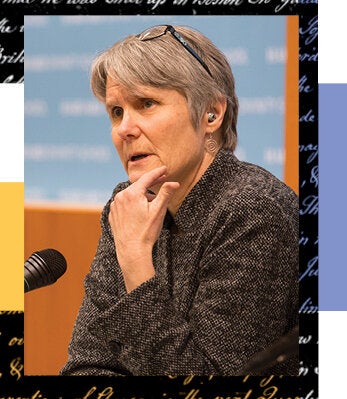
Training in religious literacy provides the context needed for a more nuanced understanding of human behavior. Moore compares this burgeoning area of study to the groundbreaking research over the past few decades that recognizes how factors such as race, gender, class, and sexual orientation provide powerful lenses that shape an individual’s outlook. Religion, she explains, is not isolated—rather it’s yet another area that can help frame questions and expose assumptions that could otherwise lead to obstacles in working with others.
“Any issues we're looking at now—around climate, race and ethnicity, democracy itself—are all profoundly influenced by deep religious assumptions in positive, as well as negative, ways,” says Moore. In fields such as international relations, Moore explains, there has been a strong view of religion as a “third rail” that is not to be touched. However, former secretaries of state such as John Kerry and Madeleine Albright have echoed John Whitehead’s sentiments that religious literacy was a critical component of their work in diplomacy.
By partnering with professionals and practitioners in a wide array of fields to explore how religion shapes society, Moore hopes the program will help strengthen civic life and build resilience during turbulent times.
“A deep understanding of religion,” she says, “provides resources for our current moment in ways that will inspire both courage and humility as we tackle daunting challenges together.”

